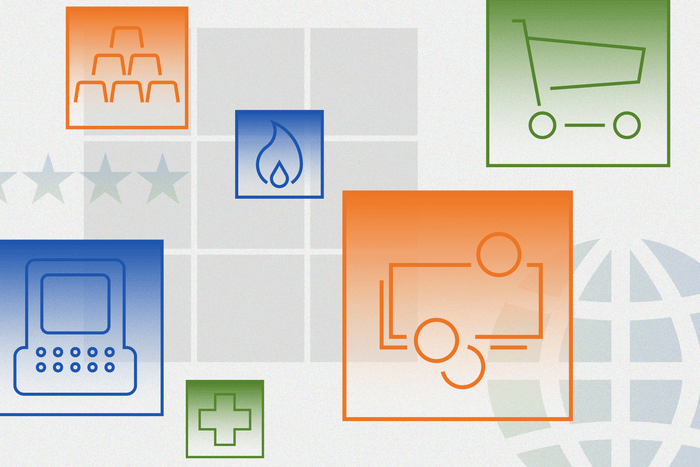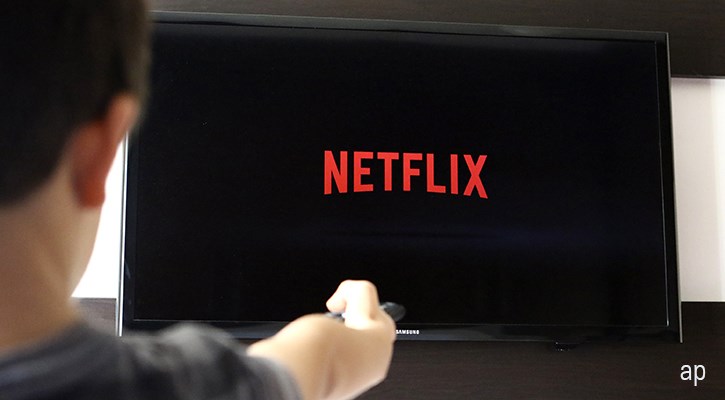
Editor’s Note: This article is based on the 2022 edition of Morningstar's Best Companies to Own. These are companies available to U.S. investors. Find the full list of companies and read about our selection methodology.
Investors from most every part of the world exhibit a certain amount of home country bias —the tendency to prefer domestic equities to international ones. This makes sense: Investors are likely more familiar with these brands and, consequently, more comfortable putting their money toward them.
But in today’s investing world, “adding international exposure is one of the first steps toward a diversified portfolio,” according to Morningstar portfolio strategist Amy Arnott. If, for example, the U.S. dollar weakens, exposure to European or Asian equities can soften the impact. So how can investors tackle international investing considering this lack of familiarity?
First, it’s important to remember that at Morningstar, we don’t view investing through the lens of daily price movements or hot tips. We see owning a single stock as similar to owning a small part of the company, or the underlying business, itself.
Consider the amount of effort we devote to researching and comparing options before buying a mattress. It tends to be a lot, and it tends to work out well for our needs, exceeding expectations, and providing a good night’s sleep. This is the same approach we take to buying a stock.
One of the best ways to identify high-quality companies is by checking out the Morningstar Economic Moat Rating, which assesses a company’s competitive advantage. The term was coined by Warren Buffett, who also said, "The key to investing is…determining the competitive advantage of any given company and, above all, the durability of that advantage. The products or services that have wide, sustainable moats around them are the ones that deliver rewards to investors.”
We used the Morningstar Economic Moat rating as a starting point to compile a list of the best companies you can own. As the best companies in our coverage universe, they have a wide economic moat, the strength of their competitive advantages is either steady or increasing, they have predictable cash flows, and they allocate their capital effectively. (You can learn more about this methodology.)
24 companies based outside of the United States made the cut. Of these, five are Canadian, and look out for an article focused on these companies later this week. Here is the complete list:
|
Company Name |
Ticker |
Sector |
Business Country |
|
Anheuser-Busch InBev SA/NV |
Consumer Defensive |
Belgium |
|
|
Ambev SA |
Consumer Defensive |
Brazil |
|
|
Canadian National Railway Co |
Industrials |
Canada |
|
|
Canadian Pacific Railway Ltd |
Industrials |
Canada |
|
|
Royal Bank of Canada |
Financial Services |
Canada |
|
|
The Toronto-Dominion Bank |
Financial Services |
Canada |
|
|
Waste Connections Inc |
Industrials |
Canada |
|
|
Yum China Holdings Inc |
Consumer Cyclical |
China |
|
|
Novo Nordisk A/S |
Healthcare |
Denmark |
|
|
Dassault Systemes SE |
Technology |
France |
|
|
Sanofi SA |
Healthcare |
France |
|
|
Ferrari NV |
Consumer Cyclical |
Italy |
|
|
Nestle SA |
Consumer Defensive |
Switzerland |
|
|
Novartis AG |
Healthcare |
Switzerland |
|
|
Roche Holding AG |
Healthcare |
Switzerland |
|
|
ABB Ltd |
Industrials |
Switzerland |
|
|
Taiwan Semiconductor Manufacturing Co |
Technology |
Taiwan |
|
|
Unilever PLC |
Consumer Defensive |
United Kingdom |
|
|
Reckitt Benckiser Group PLC |
Consumer Defensive |
United Kingdom |
|
|
Diageo PLC |
Consumer Defensive |
United Kingdom |
|
|
GlaxoSmithKline PLC |
Healthcare |
United Kingdom |
|
|
AstraZeneca PLC |
Healthcare |
United Kingdom |
|
|
BAE Systems PLC |
Industrials |
United Kingdom |
Consumer defensive and healthcare are the most represented sectors on this list, with six companies each. Industrials is close behind with five companies, and the technology, financial services, and consumer cyclical sectors each have one.
This is a notable difference from the U.S.-based names on our list of best companies, where a majority of the companies are in the industrials sector. Financial services and technology tie for second, while healthcare and consumer defensive sectors come in third and fourth, respectively.
A note of caution, though: This list is not a call to action for you to go and buy all these companies immediately. Rather, it is a list of stocks on which you should keep an eye and look for attractive entry points. Even the greatest company can be a bad investment if you overpay, and many companies on this list are currently overvalued.
That said, as of Jan. 12, two companies on the list earned a five-star rating, meaning they are undervalued as per our fair value estimates.
These are Belgium-based Anheuser-Busch InBev (BUD), the maker of Budweiser and Corona beers, and the Chinese offshoot of Yum Brands. Yum China Holdings (YUMC) that operates brands like KFC and Taco Bell in China. Let’s look at the two of them in some detail.
Anheuser-Busch InBev (BUD)
Anheuser-Busch InBev, or AB InBev, has been acquisitive, having made transformative deals for Interbrew and Anheuser-Busch, and more recently acquiring Grupo Modelo, Oriental Brewery, and SABMiller. Management's strategy is to buy brands with a promising growth platform, expand distribution, and ruthlessly squeeze costs from the business. The payback period for the SABMiller deal has been much longer than usual, however, despite management executing well on costs. We expect the merger and acquisition playbook to be on hold for a year or two more until AB InBev delivers its balance sheet.
Still, previous acquisitions have created a monster with vast global scale as well as regional density. AB InBev has one of the strongest cost advantages in our consumer defensive coverage and is among the most efficient operators. Vast global scale, along with its monopolylike positions in Latin America and Africa give AB InBev significant fixed cost leverage and procurement pricing power.
AB InBev is well-positioned to exploit secular growth in several of its markets. In Latin America and in Asia, combined almost two thirds of consolidated EBIT, the consumer is trading up into premium global brands, and ABI holds a strong portfolio with Budweiser, Corona and Stella Artois. Developed markets, on the other hand are likely to remain fragmented and competitive.
-Philip Gorham, Morningstar Equity Director
Yum China (YUMC)
The resurgence of COVID-19 cases has again put the Chinese restaurant sector under pressure. Several cities have returning to citywide quarantines, and travel volume during the early period of Chinese New Year is down 70%, placing pressure on the company’s near-term results. Nevertheless, we believe investors should find confidence in restaurants: possessing the scale to be more aggressive on pricing near-term; giving their customers greater access through robust digital ordering, delivery, and drive-thru capabilities; and who have healthy balance sheets when looking for restaurant industry opportunities.
In our view, Yum China satisfies these investment criteria, and we identify several opportunities for it to gain share in the fragmented, USD 700 billion Chinese restaurant market. In China, chains account for roughly 17% of restaurant spending compared with 61% in the U.S. and 34% across the globe. Our conviction in rising fast food penetration is underpinned by three long-term secular trends: longer working hours for urban consumers; rapidly rising disposable income; and ever smaller family sizes.
While 2021 will still present COVID-19 related disruptions, we find management's longer-term goals of high-single-digit system sales growth, 17% restaurant margins, and low- to midteens EPS growth realistic (if not slightly conservative) given favorable China consumer demographic trends and the operating leverage inherent in its business model. Coupled with Yum China's dividend (a USD 0.12 quarterly cash dividend was reinstated in the fourth quarter of 2020) and future share repurchases, we believe Yum China offers investors above-average potential.
-Ivan Su, Morningstar Senior Equity Analyst




















